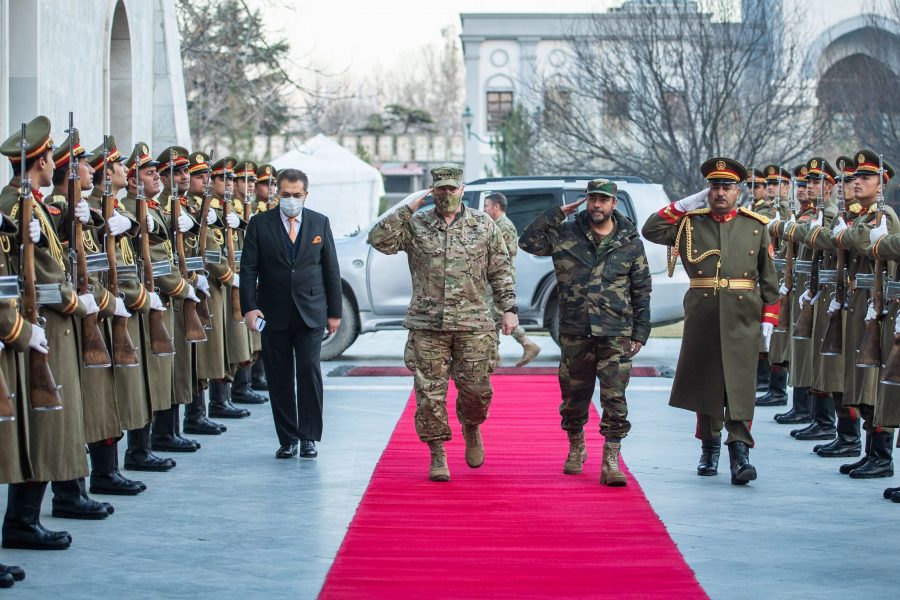Chairman of the Joint Chiefs of Staff Gen. Mark A. Milley on Dec. 15 met with Taliban negotiators, before moving on to Afghanistan to speak with local leaders regarding the ongoing and fragile peace process aimed at ending the 19-year-old war.
The meeting marked the second time Milley met with representatives of the group the U.S. has been fighting with in Afghanistan since 2001. He previously met with the group in June, a meeting that was not announced until Dec. 17. Milley met with Taliban representatives for about two hours in Doha, Qatar, before flying to Afghanistan to meet with Afghan President Ashraf Ghani and U.S. military leaders, according to The Associated Press. The AP reported that, because of security reasons, the visit was not made public until Milley left the region.
“The most important part of the discussions that I had with both the Taliban and the government of Afghanistan was the need for an immediate reduction in violence,” Milley told reporters, according to the AP. “Everything else hinges on that.”
The Afghan government and the Taliban have been negotiating an end to the conflict, though violence remains at a high level. U.S. forces are set to draw down to about 2,500 total deployed troops in the country by Jan. 15. Gen. Austin Scott Miller, commander of U.S. Forces-Afghanistan, told the AP the Taliban has increased its attacks on Afghan forces, especially in Helmand and Kandahar.
“My assessment is, it puts the peace process at risk—the higher the violence, the higher the risk,” Miller told the AP.
While the U.S. military no longer publicly discloses its airstrikes or other offenses in Afghanistan, there have been individual airstrikes on Taliban targets recently. On Dec. 10, U.S. forces conducted a strike against Taliban fighters attacking an Afghan checkpoint. USFOR-A spokesman Col. Sonny Leggett said the strike was in line with the U.S.-Taliban agreement and that claims of civilian casualties are false.
U.S. Central Command boss Gen. Kenneth F. McKenzie Jr. said Dec. 10 that after the drawdown, U.S. forces will be “very careful and more focused” on when to provide support to Afghan forces because of the reduction in capacity.
Milley, speaking Dec. 2, said the drawdown in the country comes after two decades of consistent effort in Afghanistan, which brought “a modicum of success.” Though for the past several years, “We have been in a condition of strategic stalemate where the government of Afghanistan was never going to militarily defeat the Taliban. And the Taliban, as long as we were supporting the government of Afghanistan, was never going to militarily defeat the regime.”
Editor’s note: This story was updated at 7:11 p.m. to add information about an original meeting between Milley and the Taliban in June.

